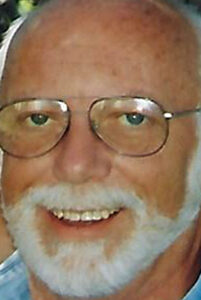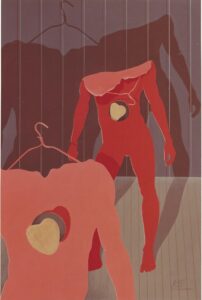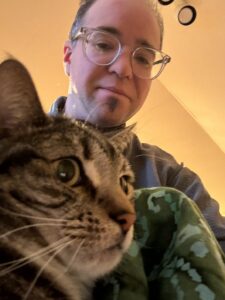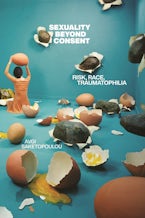Summertime, and the living is…not easy.
Many book-lovers are heartbroken over new revelations that the recently deceased fiction writer Alice Munro, a Nobel Prize for Literature winner, covered up her husband’s sexual abuse of her daughter. Andrea Robin Skinner’s July 7 essay in the Toronto Star describes how her stepfather, Gerald Fremlin, began molesting her when she was nine. When her PTSD started taking over her life in her 20s, she attempted to tell Munro. It didn’t go well:
One day, during that period, while I was visiting my mother, she told me about a short story she had just read. In the piece, a girl dies by suicide after her stepfather sexually abuses her. “Why didn’t she tell her mother?” she asked me. A month later, inspired by her reaction to the story, I wrote her a letter finally telling her what had happened to me.
As it turned out, in spite of her sympathy for a fictional character, my mother had no similar feelings for me. She reacted exactly as I had feared she would, as if she had learned of an infidelity.
She called my sister Sheila, told her she was leaving Fremlin, and flew to her condo in Comox, B.C. I visited her there and was overwhelmed by her sense of injury to herself. She believed my father had made us keep the secret in order to humiliate her. She then told me about other children Fremlin had “friendships” with, emphasizing her own sense that she, personally, had been betrayed.
Did she realize she was speaking to a victim, and that I was her child? If she did, I couldn’t feel it. When I tried to tell her how her husband’s abuse had hurt me, she was incredulous. “But you were such a happy child,” she said.
…My mother went back to Fremlin, and stayed with him until he died in 2013. She said that she had been “told too late,” she loved him too much, and that our misogynistic culture was to blame if I expected her to deny her own needs, sacrifice for her children, and make up for the failings of men. She was adamant that whatever had happened was between me and my stepfather. It had nothing to do with her.
“Alice Munro Was Hiding in Plain Sight,” Michelle Dean writes in The Cut, observing that Munro’s fiction about repressed Canadian families takes on a new resonance now. “All the stories, every last one, are about secrets the people in them keep because they are constrained by personality or, more often, by their ‘quiet’ social order from expressing any kind of inner life.”
This story feels like a gut punch to a lot of readers because Munro wrote so insightfully about the psychology of families other than her own, and because she wasn’t a typical literary bad boy. (For instance, the sexual assault accusations against Neil Gaiman don’t seem inconsistent with the porny misogyny of some of his comic-book scripts.) If she could have a secret like this, anyone could be next. I remember my disillusionment on learning about similar behavior by Marion Zimmer Bradley, whose novel The Mists of Avalon was revered in my childhood home for its positive model of feminist and pagan spirituality.
But human beings can be willfully ignorant a lot of the time–just look at “What Were We Thinking? The Top Ten Most Dangerous Ads” from Collectors Weekly, reprinted on Pocket Worthy. Did we really believe that women should douche with Lysol, or that children should eat Vitamin Donuts? I’m guessing that the “Vi-Rex Violet Rays” self-shock machine was a tactfully disguised sex toy, like the Relax-a-Cizor weight loss belt that Peggy Olson tested on “Mad Men”. You’ll love the way it makes you feel!
Ijeoma Oluo, author of the NY Times bestseller So You Want to Talk About Race, has a bracing but optimistic post on her Substack called “How We Get Through This”—this being the rise of fascism entailed by end-stage capitalism. The government’s not going to save us. Oluo says, “start supporting real, revolutionary work happening outside of our systems…Build friendships and connections based on community care.” Meditate, get therapy, make art, and give yourself permission to stop doom-scrolling. Hobbies are a survival skill, not frivolity.
You’re going to need something you enjoy doing, something that is accessible and affordable, that can really take up your time and attention when you need it, and is completely unrelated to organizing work. You need that thing that you can do while your internal systems regulate and recover from the near constant state of panic and attack that these external systems want to keep us in. This is not escapism, this is crucial to our survival. We absolutely cannot survive in constant states of fight or flight. You need to be deliberate about cultivating activities that you can always access that will allow you brief moments of rest.
Charlie J. Stephens’ exquisite novel A Wounded Deer Leaps Highest, released this spring by Torrey House Press, is about that kind of survival. A nonbinary tween in 1980s rural Oregon, abused and neglected at home, takes refuge in their mystical connection with nature. Orion Magazine interviewed them in this piece, “Beyond Binaries in Ecological Writing”. Stephens says:
I particularly love the work that queer ecology does in questioning our human assumptions about what is “natural” and what is “normal.” I wrote a recent personal essay specifically on the binary, and I appreciate how queer ecologists/thinkers have made links between that mindset and climate collapse. I’ve been particularly interested in the past few years in studying and practicing animism, which overlaps with queer ecologies in terms of envisioning a world where human and non-human beings are given equal consideration and where, ideally, one day, our mutual interdependence is made clear to the masses…
…I have long found it uncomfortable that the earth is so often depicted as female, and as a mother. I’m not familiar enough with the ways other cultures hold this, but in the specific, largely white middle-class, American environmental movement of the 1970s it was a strange (but unfortunately, completely predictable) decision to feminize the earth as a strategy for its salvation in a country that is thoroughly misogynist and systematically punishes women. If the leadership of that movement had been in the hands of other cultures here, I believe we would be in a much different place now.
One of my animist teachers, Daniel Foor, talks about the importance of not continuing to unconsciously project our societal ideas about gender onto the planet, and in having historically done so, we can see where this has led us. He also talks about the problem of seeing Earth as a woman who needs to be protected and saved, and how that opens the door to patriarchal chivalrousness—and savior mentalities—instead of just seeing our mutual interconnectedness.
For more fresh perspectives on healing, I recently discovered the site Mad in America: Science, Psychiatry and Social Justice. Leah Warren’s June 19 article “Madness, Utopia and Revolt: An Interview With Sasha Warren” talks with the founder of the project Of Unsound Mind, which examines the links between the mental health industry and the carceral state. Warren recounts excavating the archives of old asylums for inmate-produced publications that reveal not only suffering but self-advocacy, humor, and even appreciation for their treatments. From these surprising findings, Warren concluded that both psychiatry and anti-psychiatry movements trade in oversimplified binaries and false promises of cure-alls for the evils of the past. “In a sense, every founding gesture of psychiatry is also an anti-psychiatric gesture. Psychiatry requires anti-psychiatry so that it doesn’t get stilted and stuck and frozen in place. It needs this negative gesture to break it up and allow it to flow more freely into other spaces.”








